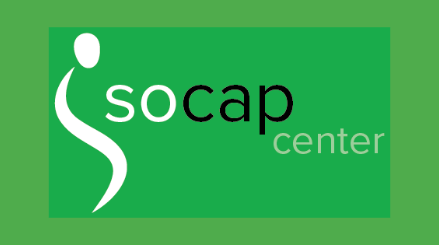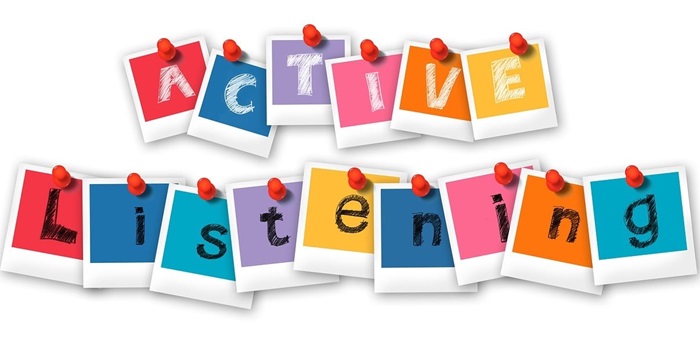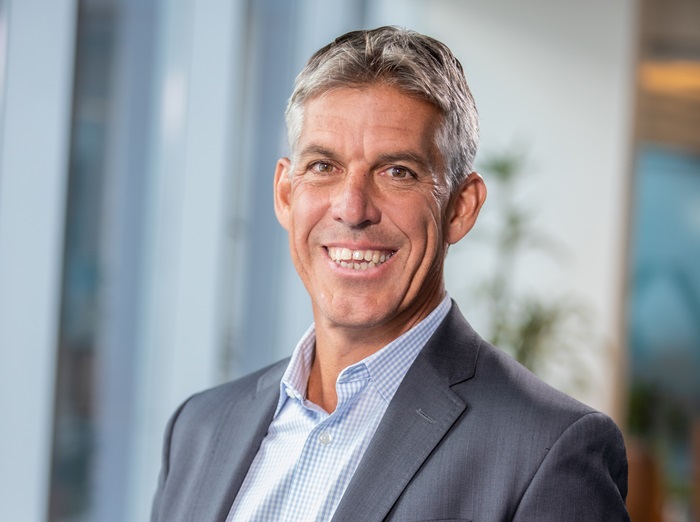Faith Matters – And the Business World Finally Gets It!
By Chris Benguhe, RaeAnne Marsh and Elaine Pofeldt | February 8, 2024 7:04 am
These companies and their leaders realize that inclusivity must include faith if they want to prosper – and the world to benefit, too!

For many who are religious, their faith is a big and important part of how they act and behave at work as well as in their personal lives. (Istock/gustavofrazao)
Soon after launching the Center for Social Capital last October, we planned our editorial calendar for the year, and we resolved to include an article on faith — specifically, companies that see the importance of recognizing faith as part of their overall inclusivity efforts and making it not just allowable but proudly promoting that openness. We were hearing fist-hand from very prominent Social Capital CEOs how much their employees were asking for it, and how much positive feedback they received from them after instituting such practices — sometimes in spite of heavy pushback.
Then, just as we were putting together our article, our focus and perspective on the importance of faith in business was validated when the World Economic Forum complemented our research with their Faith in Action report produced in collaboration with the World Evangelical Alliance, Bhumi Global, Council for Inclusive Capitalism, the Religious Freedom and Business Foundation.
“Eighty-five percent of the world’s population follow a religious or spiritual tradition, and global leaders must find new ways to engage with faith-based groups and others in civil society that are the closest to the communities and solutions needed today,” said David Sangokoya, head of Civil Society Impact at the World Economic Forum. “The report reflects on how business can accelerate positive societal impact together with faith actors through partnerships, and additionally what the world of faith can bring towards driving corporate social impact, improving employee engagement and bridging ideological divisions.”
The report echoes our findings that, after what seemed like a downward trend in the latter part of the twentieth century and beginning of this one to tamp down on the expression of faith in the public square, thank God (pun intended), in the United States at least, companies are catching on. They are not just allowing but encouraging expressions of faith, along with other personal beliefs, in the workplace. In fact, a recent report by the Associated Press found more than 20% of Fortune 100 businesses have established some kinds of faith-based employee resource groups.
“It has become standard practice for U.S. corporations to assure employees of support regardless of their race, gender or sexual orientation,” said an Associated Press article. “There’s now an intensifying push to ensure that companies are similarly supportive and inclusive when it comes to employees’ religious beliefs.”
There is even a foundation that tracks this, the Religious Freedom & Business Foundation, led by founder and president Brian Grim, who explains some of the rationale behind why it is the right thing to do. “As corporate America has become increasingly focused on creating environments where people can bring their whole selves to work regardless of their backgrounds or abilities, some companies are embracing diversity practices that go beyond the minimum legal requirements for accommodation [of religion in the workplace],” says Grim. “While special inclusion programs surrounding race, gender and sexual orientation are the norm, the business community is rapidly realizing that faith expression is critically important.”
The Religious Freedom & Business Foundation says it is “dedicated to educating the global business community, policymakers, non-government organizations and consumers about the positive power faith — and religious freedom for all — has on business and the economy.”
Obviously, we at the Social Capital desk were glad to hear about all this, as we are all about respecting people in business, and something as personally important as faith seemed like a pretty powerful aspect to respect.
However, back to that still-present resistance. The varying, sometimes critical responses made us realize there is still a lot of work to do in order to bring respect for this type of diversity to every company out there in a way that does not make those without faith or religious conviction feel discriminated against, while also doing our best as a society to dispel fears some may have that can inspire religious discrimination.
The bottom line is that for many who are religious, their faith is a big and important part of how they act and behave at work as well as in their personal lives. When those employees feel comfortable not just acting out their faith but also talking about their religious beliefs, it can create an opportunity for everyone to gain more of an understanding of their colleagues’ personal motivations and values, how those are manifesting in their organizations, and all the positive possibilities that may come from that as well.
As you can imagine, this might not always be easy. Such public discourse may inspire employees to disagree with each other or, potentially, conflict with the requirements of the business, and create challenges with service to the customer and the fair treatment of all employees.
But these are all issues that need to be figured out, not reasons to avoid the practice. For those companies that take the tiger by the tail to accomplish it, we thought it was yet another important element of Social Capital to feature and recognize. So, we found several companies that we believe not only exhibit all the important facets of Social Capital in general but are really making a great effort to celebrate and encourage the practice and deference for employees to embody their faith proudly at work, and to talk about all the reasons why and the benefits derived.
And if the World Economic Forum is right in its contention that partnering with faith-based groups can help save the world, so to speak, then that’s all the more reason for the support and the promotion of faith at work.
So, God bless American Business and this month’s honorees.
Stephan Jacob, Cotopaxi
“The notion that ‘you can’t talk about religion at work’ never resonated with me,” says Stephan Jacob, Cotopaxi co-founder and COO. Recognizing that faith and religion are deeply personal, he acknowledges that, while it can provide wonderful guidance, comfort and grace, it also has the potential to cause division — but, he says, “To me, that is all the more reason to ensure that we provide a work environment at Cotopaxi where faith is not a taboo topic but is acknowledged as a contributor to a thriving team of diverse talent.”
In his private life, Stephan serves as an Elder at a Presbyterian church where the guiding principle is “No matter where you are in your journey of faith, you are welcome here.” “For me,” he shares, “this means engaging from a place of love, openness and genuine appreciation in every interaction — inside and outside our community.”
This stance regarding faith, he notes, is essentially what underlies the culture at Cotopaxi. “We try to role model this as a leadership team. We don’t just use the ‘heart’ emoji on Zoom/Google Meet; we actually use the word ‘love’ a lot.” Observing that although this may seem strange in a corporate environment, Stephan has found that, if done right, it fosters vulnerability, openness and genuine care for each other — which lays the foundation for Cotopaxi team members to have candid conversations about topics of faith and other aspects of their true selves.
To that point, he shares, “By far my favorite meetings at Cotopaxi are our ‘Life Hikes,’ which we host every two weeks. One Cotopaxi team member gets ‘on stage’ to share their life story, however they deem fit. Everybody else just listens. I can’t tell you how proud and grateful I am for the candor with which our team has shared their life experiences, struggles, faith and all, and the wonderful, judgement-free reception and outpouring of love by fellow team members in the audience!”
For people whose belief system is an integral part of how they live their life, there may be physical aspects, from diet to rituals of observance, to bringing their authentic selves to work. For Cotopaxi, being a ‘remote first’ organization with employees working primarily from home makes such accommodation easier. But it’s not left to chance. “At the office and at company events,” Stephan says, “we err on the side of flexibility to accommodate the needs of our employees, whether those needs originate in faith traditions, physical or mental health needs or other. Our only ask is that employees are up-front about their needs, so we can figure out solutions together.”

“I’m proud of bringing my faith into the workplace,” says Intel CEO Pat Gelsinger (Istock/VectorMine)
Stephan believes that, all else being equal, a more diverse Cotopaxi brand will outperform a less diverse Cotopaxi brand. He notes there is ample evidence that creativity, operational excellence and financial performance all benefit from diversity — ethnic, gender, sexual orientation and faith. “Yes, these topics can create momentary discomfort and insecurity, building and managing a diverse organization requires more proactive leadership and People Ops resources,” he observes. “That said, we firmly believe that the benefits of creating an environment where our team feels comfortable to bring their full self to work and the amazing talent pool that is drawn to such environments by far outweighs those challenges.”
Pat Gelsinger, Intel
“Today, there’s a lot of discussion on diversity and inclusion. It turns out that, for humanity, over 70% of all humans on the Earth claim that faith is an or the most important thing in their lives. So, if we’re going to talk about diversity and inclusion but we’re not going to allow faith in the workplace, I’m telling 70% of humanity, ‘No, the most important thing to you can’t come into the workplace.’ So, of course, ‘diversity and inclusion’ means faith has to come into the workplace. It needs to be visible,” Intel CEO Pat Gelsinger shared in an interview with Faith Driven Movements.
Pat has been at the helm of Intel three years. Assuming that leadership position, he brought with him a track record of business accomplishments and employee accolades, the latter including a 99% employee approval rating in Glassdoor’s annual survey that earned him the No. 1 spot on its list of top U.S. CEOs.
He also brought with him his high-profile visibility as a leader of a publicly traded company who is very open about living his Christian faith. And he makes it clear that his faith is not something he can leave at the door when he enters his workplace, and he makes it equally clear that he recognizes that need in everyone else.
Keeping faith at home, away from the workplace, doesn’t work, he emphasizes, noting that diversity and inclusion is all about individuals bringing their whole self into the workplace. “Your ethnic self, your sexual orientation, your social, and your faith,” he says. Claiming, “I’m proud of bringing my faith into the workplace,” he points to the value of his setting an example and tone for the rest of the company. “If I, as the CEO, and the chief culture officer of Intel, can’t demonstrate my diversity in the workplace, then how could anybody? So, in fact, I need to be representing my faith, what’s most important to me, or other aspects of my personality in the workplace.”
He makes the point of faith being an element of diversity and inclusion. “I also then, as a Christian CEO, need to make it OK for everybody else to bring their faith perspectives into the workplace. ‘Oh, you’re a Sikh? Tell me about being a Sikh. What’s Ramadan?’” and he shares that when, early on, he was talking to his board of directors, who celebrate Ramadan, he told them, “Next year, I’m going to celebrate with you. And I’m going to do the fasting with you next year as well. I’m going to know about your faith and your perspectives and so on.”
Pat makes a distinction between proselytizing and talking about your faith as he says, “I’m bringing my whole self into the workplace. And I must make it OK for all other faith perspectives — including no faith.” Whatever a person’s world view, Pat is committed to making it OK to express it, to live it “when they’re part of my team, part of the workplace that we’re together sharing.”
He is also on record as saying, “When we take into account everyone’s nuanced differences, we put our organizations in a position to capture truly sustainable business advantages.” Part of Intel’s approach to that is to enable employees to form resource groups based on religion. As Intel’s website explains, “Intel’s Cross-Faith and Beliefs ERG Leaders Alliance has helped foster connection amongst faith-based employee resource groups (ERGs) since 2019, when the leaders of seven ERGs decided to meet to get to know each other better. Through their diverse perspectives, they found ways to connect and build a platform for education amongst ERGs.” And true to Pat’s concern, these ERGs do include one for atheists and agnostics.
Alex Chriss, PayPal
PayPal has been on our Social Capital radar for a while because it is known as a purpose-driven company; its leadership strives to make decisions guided by a set of beliefs that they identify as the foundation for how they conduct business every day. Through its One Team Behaviors, PayPal aspires to hold the highest ethical standards, to empower an open and diverse corporate culture, and commit to treating everyone touched by the company with dignity and respect. It welcomes its employees to challenge the status quo, ask questions and find solutions.
To further this corporate culture, PayPal has in place “Believe,” an employee resource group for its Interfaith Diversity & Inclusion Community.
On its website, PayPal states, “We believe all employees have the right to bring their whole self to work. Faith and worldviews are core to who we are — our values and beliefs — and to how we conduct business. The mission of Believe is to foster an inclusive work culture and to promote holistic wellbeing by providing a forum to openly exercise and celebrate all faiths and worldviews while working. Believe exists to create awareness and understanding of faith, hope, love, empathy, respect for one another and service toward our customers, communities and co-workers.”
Believe’s core objectives are to:
- Embrace–Create a safe environment where our faith and worldviews are intrinsically valued and supported.
- Transcend–Increase understanding, awareness and cultural sensitivity to our diverse faiths and worldviews.
- Celebrate–Share our traditions and holidays in a fun and engaging way.
- Be Open to All–Welcome people of all faiths and worldviews, including all interested in experiencing or learning, so employees can bring their whole self to work.
This definitely seems completely in accord with the philosophy and leadership style of PayPal’s new leader, Alex Chriss, who is on the steering committee of the Council for Inclusive Capitalism.

To support employees in living their faith, TI offers time-off flexibility around religious holidays and serenity rooms for prayers or worship. (Istock/Mustafa_Fahd)
That organization’s platform for action states, “Making economies more inclusive requires trying new ideas and making progress. Individually, Council members commit their organizations to specific, measurable actions and publicly declare these commitments on the Council’s online platform.”
We are hoping that means that under Alex, PayPal will become even more committed to inclusivity in faith.
Rich Templeton and Haviv Ilan, Texas Instruments
When Texas Instruments leadership transitioned from current chairman Rich Templeton to president and CEO Haviv Ilan in 2023, the company continued its commitment to practicing diversity and inclusion — and faith is an important part of that equation. The company’s vice president of Diversity & Inclusion, Yesenia Moore, shares with us some specifics about TI’s approach.
“At TI, we strive to create an environment that unlocks everyone’s potential, where we treat one another with respect, value our differences, and are encouraged to put our thoughts and ideas on the table,” Yesenia says, specifically noting, “We thrive by co-creating an inclusive workplace and are proud that our faith-based employee resource groups have exemplified our values by inspiring conversations and open dialogue that lead to greater understanding and respect amongst our employees.”
Among the employee-led ERGs are three that are faith-based — Muslim Employee Network, Christian Employee Network and Jewish Employee Network — which were founded in 2001. Yesenia reports that these groups often collaborate and host events with each other and across other TI ERGs, to help build a bridge between different ideologies and provide the employees with opportunities to learn more about their colleagues’ beliefs and traditions. To that end, she notes, “These events are open to TI employees of all faiths, including those with no specific religious affiliation.” A few examples of faith-based events are “Religious Freedom and Inclusion Presentation — History of Religion in the US,” joint religious fundraising luncheons, religious panel discussions and visits to places of worship.
“An inclusive environment is essential at TI. It enables our global workforce to contribute openly and without barriers. In this environment, diversity thrives and every employee — no matter where they are and what job they hold — has the opportunity to take part in the company’s business success. We believe our rich diversity improves thought processes, encourages collaboration and ignites creative solutions,” a company presentation quotes Rich Templeton as chairman, president and CEO.
To support employees in living their faith, TI offers time-off flexibility around religious holidays and serenity rooms for prayers or worship. The serenity rooms at several of TI’s campuses are open 24 hours a day, 7 days a week to any employee and serve as a quiet space for prayer or meditation.
“Further,” Yesenia says, “employees are encouraged to dress comfortably and in a way that allows them to perform their jobs safely. Our cafeterias cater to a diverse audience and provide offerings for religious dietary needs.”
TI, as a global company, is well aware it has a workforce that represents a wide range of diverse worldviews, Yesenia points out. “For many employees, their faith is the foundation of their core values and self-identity. When you’re able to bring your full self to work, employees are more engaged and collaborative.”
In offering faith-based ERGs, TI provides employees with opportunities to drive greater understanding across cultural boundaries. Noting that open dialogues make the company stronger by breaking down barriers and providing employees with a better understanding of their co-workers, Yesenia says, “Collaboration among faith-based ERGs can serve as a bridge between different ideologies — and the potential for connection and impact is significant.”




